Making large, capital purchases for your restaurant is always stressful. You want every big purchase to be a lucrative investment for your business, but how do will you know what kind of return on investment you’ll be getting? What if you make the wrong choice? And nothing is quite as anxiety producing as buying restaurant equipment. Not only is it a significant financial investment, but your restaurant equipment impacts your daily efficiency and service as much as your staff does.
If you’re looking to buy a new piece of restaurant equipment (or even just one that’s new to you), it’s time to ask yourself: How do you approach restaurant equipment suppliers? How do you narrow down the equipment you want? How do you make sure your investment will last?
Here are a few actions to consider when it comes to narrowing down these choices and working directly with restaurant equipment suppliers.
Decide on new or used.
It may be tempting to save a few bucks and choose used over new when working with restaurant equipment suppliers. But used equipment could break down more often, which will not only cost you to repair, but will also slow down your kitchen as they try to make the best experience for your guests. This leads to frustrated kitchen staff and frustrated guests (which probably also means your front-of-the-house staff won’t be too happy, either). Older equipment is also more likely to not adhere to your local fire, health, and building codes.
Another caution when it comes to used equipment is potentially the lack of a warranty. A restaurant equipment supplier could be offering you a great price on a used piece of equipment, but if it’s out of warranty or doesn’t include a maintenance plan, are you really getting a good deal on it?
Comparatively, a new piece of restaurant equipment might be more expensive upfront, but if it has a good maintenance plan and warranty, you could be saving money in the long run by not having to pay for maintenance and repairs down the line. Also keep in mind your restaurant equipment’s energy efficiency rating. Thanks to new technology and stronger customer interest, newer models often offer better energy conservation than older models. This efficiency will help your restaurant be greener, but it can also cut down on your utility bills.

All that said, just because you should be careful when buying used equipment doesn’t mean that used equipment is inherently out-of-date or a bad investment. Because so many restaurants close within a year or so of opening, there tends to be plenty of gently used, nearly new commercial kitchen equipment for sale on the market. A used piece of restaurant equipment will also depreciate less compared to a brand-new unit.
As an added bonus, giving gently used equipment a new home is another way to be environmentally friendly since it’s one less appliance heading to the dump. You just want to make sure the gently used equipment is still in warranty/has a maintenance plan, and also still functions correctly.
Ask for advice.
Don’t discount one of your most powerful resources — your peers. Yes, the restaurant owners in your community are your competitors, but friendly competition can also include interacting and building professional friendships. You should be able to ask your fellow restaurant owners advice about the day-to-day aspects of the business, and especially their suppliers. While asking open questions is fair game, come to the table with specific suppliers in mind. “Hey, I heard you got your convection oven from ______. Have they been a good supplier?” is a perfect opener.
Visit trade shows.
After you’ve started researching potential suppliers, restaurant industry trade shows can be a great opportunity to meet those vendors first hand. Trade shows allow you to visit with multiple suppliers in one day, chatting with them in a casual setting and making connections and asking questions.
But it’s important to not walk onto the trade show floor unprepared. Remember, the salespeople set up their displays to pull people in and wow them. If you visit the trade show without any research on these companies beforehand, you might risk getting pulled into a very compelling sales pitch that doesn’t actually fit your restaurant’s needs.

Bring questions to the table.
When you meet with a potential new equipment vendor (whether during a trade show or a scheduled meeting), be prepared to ask specific questions, including:
- Do you offer maintenance plans?
- Do you offer warranties?
- Do these models include add-on equipment?
- What is the cleaning regimen for your models?
- Which models include ENERGY STAR® certification (for energy efficiency)?
What about changing suppliers?
Let’s say you’ve been in business for years and might need to buy equipment. Whether you’re replacing your old unit or buying additional units, you should know you don’t have to stick with the same equipment supplier. Things change. Maybe your supplier relationship was great for years, but they don’t have the state-of-the-art equipment you’re looking for. If you decide they’re not the right supplier for the present needs of your business, the best thing to do is be clear and tactful when breaking ties. While no one likes losing business, it will mean a lot for your reputation if you explain to the supplier why you won’t be continuing business with them instead of ghosting them.
Want a quick checklist on working with all kinds of vendors? Download our free tool “How to Choose the Best Restaurant Suppliers” today!






